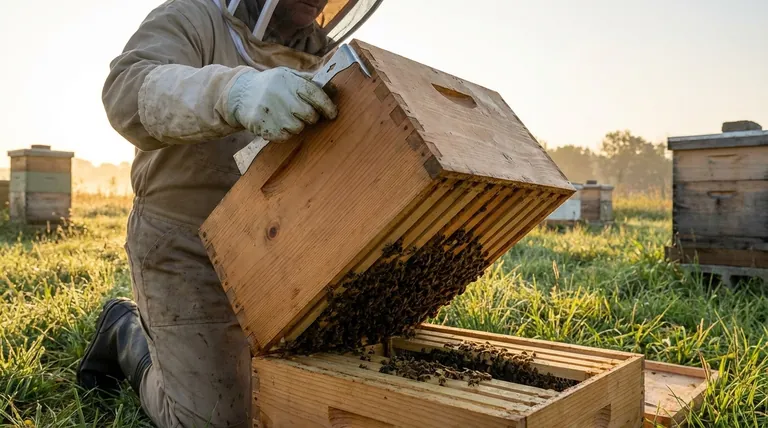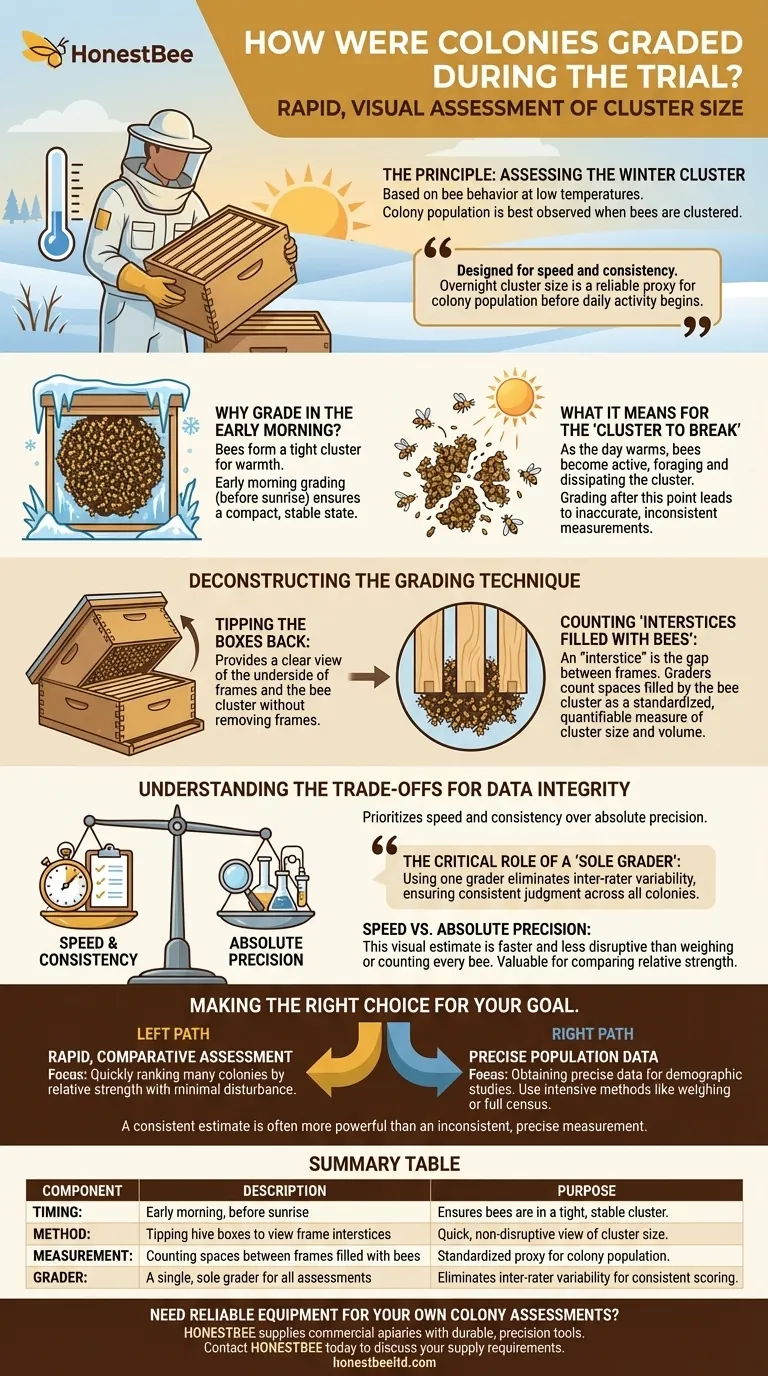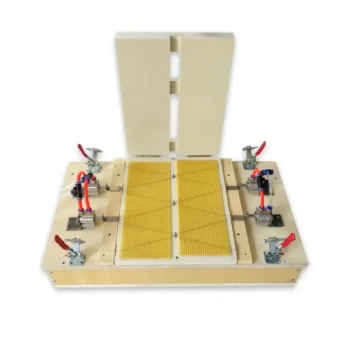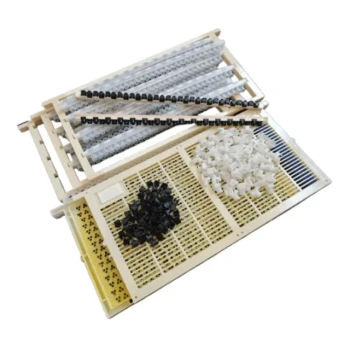During the trial, the bee colonies were graded using a rapid, visual assessment of the cluster size. This was accomplished by tipping the hive boxes in the early morning to count the number of spaces between the frames that were filled with bees.
The grading method was designed for speed and consistency. It used the size of the bees' overnight cluster as a reliable proxy for colony population, ensuring all measurements were taken under identical conditions before daily activity began.

The Principle: Assessing the Winter Cluster
The entire methodology is based on understanding bee behavior at low temperatures. A colony's ability to survive and thrive is directly related to its population size, which is most easily observed when the bees are clustered together.
Why Grade in the Early Morning?
Bees form a tight cluster to maintain warmth overnight and during cold weather. Grading in the early morning, before sunrise, ensures the assessment is done when the ambient temperature is low and the cluster is at its most compact and stable state.
What It Means for the "Cluster to Break"
As the day warms up, bees become active and begin foraging. This causes the tight overnight cluster to dissipate or "break." Attempting to grade the colony after this point would lead to inaccurate and inconsistent measurements, as the bees would be dispersed throughout the hive.
Deconstructing the Grading Technique
The method described is a common field technique for estimating colony strength without performing a full, disruptive inspection. It balances the need for data with the need to minimize stress on the bees.
"Tipping the Boxes Back"
This action provides the grader with a clear view of the underside of the frames within the hive box. From this angle, it's possible to see the bottom of the bee cluster without having to pull individual frames out.
Counting "Interstices Filled with Bees"
An interstice is simply the gap or space between two adjacent objects. In this context, the grader was counting the number of spaces between the bottom bars of the frames that were visibly filled with the bee cluster. This count serves as a standardized, quantifiable measure of the cluster's width and, by extension, its total volume and population.
Understanding the Trade-offs for Data Integrity
Every research method involves trade-offs. This technique prioritizes speed and consistency over absolute precision.
The Critical Role of a "Sole Grader"
Using a single person to perform all the grading is a crucial control. It eliminates inter-rater variability, which is the inconsistency that arises when multiple people interpret and score the same observation differently. A sole grader ensures that any judgment calls are made consistently across all colonies.
Speed vs. Absolute Precision
This visual method is an estimate of colony strength, not a direct census. It is much faster and less disruptive than weighing the hive or counting every frame covered in bees. For a trial comparing the relative strength between colonies, this rapid and consistent estimation is often more valuable than a slower, more precise measurement that could be affected by changing conditions.
Making the Right Choice for Your Goal
The validity of any measurement technique depends entirely on the research question.
- If your primary focus is a rapid, comparative assessment of many colonies: This method is an excellent choice for quickly ranking colonies by relative strength with minimal disturbance.
- If your primary focus is obtaining precise population data for a demographic study: You should use more intensive methods, such as weighing the hive or conducting a full frame-by-frame bee census.
Ultimately, choosing the right method requires understanding that a consistent estimate is often more powerful than an inconsistent, precise measurement.
Summary Table:
| Grading Component | Description | Purpose |
|---|---|---|
| Timing | Early morning, before sunrise | Ensures bees are in a tight, stable cluster before daily activity begins. |
| Method | Tipping hive boxes to view frame interstices | Provides a quick, non-disruptive view of the cluster size without removing frames. |
| Measurement | Counting spaces between frames filled with bees | Standardized, quantifiable proxy for estimating colony population and strength. |
| Grader | A single, sole grader for all assessments | Eliminates inter-rater variability, ensuring consistent scoring across all colonies. |
Need reliable equipment for your own colony assessments? HONESTBEE supplies commercial apiaries and beekeeping equipment distributors with the durable, precision tools required for consistent hive management and data collection. From hive boxes to protective gear, our wholesale-focused operations ensure you get the quality equipment you need. Contact HONESTBEE today to discuss your supply requirements and enhance your beekeeping operations.
Visual Guide

Related Products
- HONESTBEE Advanced Ergonomic Stainless Steel Hive Tool for Beekeeping
- Professional Dual-End Stainless Steel Hive Tool for Beekeeping
- Professional 3-Bar Frame Grip with Integrated Hive Tool
- Beehive Handle and Frame Rest Cutting Machine: Your Specialized Hive Machine
- Plastic Chinese Queen Grafting Tool for Bee Queen Rearing
People Also Ask
- What are the basic tools for beekeeping? Essential Starter Kit for Safe & Successful Hive Management
- Why is it important to compare the progress of different hives? A Beekeeper's Key Diagnostic Tool
- What is the hole in a hive tool for? A Multi-Tool for Apiary Repairs and Maintenance
- How does the hive splitting process contribute to colony management? Master Your Apiary Recovery Strategies
- What is the significance of professional hive-making tools? Scale Your Stingless Bee Farm with Precision Equipment



















